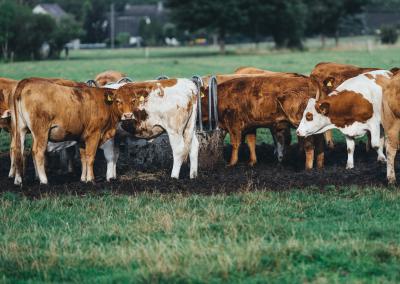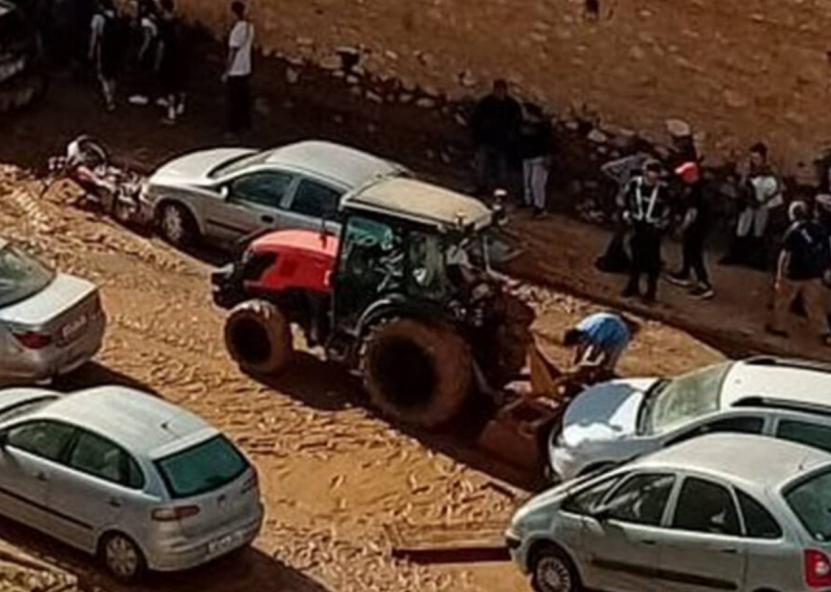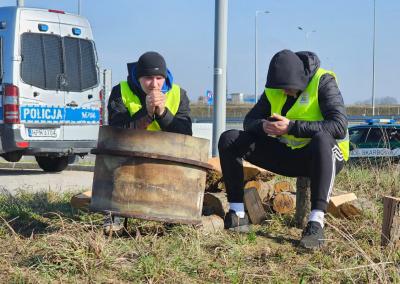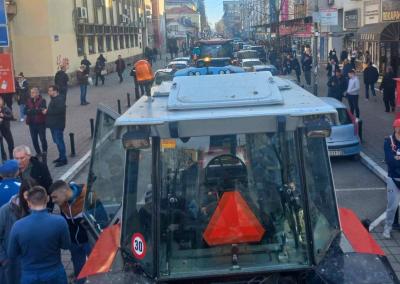Spanish farmers help in the aftermath of devastating floods, even after losing their crops
Huge floods caused by heavy rains a week ago, mainly in the Valencia region, have left many Spanish farmers without a harvest this year. As well as killing more than 200 people, the floods also hit agriculture hard.
The Union of Small Farmers (UPA) has described the consequences of the floods as an "unprecedented human disaster" and says it will take "patience" to see the true extent of the damage to the countryside caused by the natural disaster.
Many farmers are being urged by their organisations not to rush to file claims with the insurance company „Agroseguro“ until the waters have finally receded and the real damage to the mainly citrus and olive trees becomes clear.
The rains are said to have started at a critical time of the harvest, which was supposed to be assessed in about a month. But now floods have devastated vast areas of agricultural land in the Valencia region.
Despite the enormous losses, Spanish farmers are making a strong contribution to the aftermath of what has become a national tragedy. With their machinery in the Valencia region and in other affected areas, they have been helping to pull up stacked cars and remove drifts caused by the floods.
These rains will have sad consequences for fruit grown in Spain, such as the flooded mandarins and oranges, especially the „Navelina“ variety.
Farmers are scratching their heads as fields are covered in mud: trees are drowned in thick sludge that makes harvesting simply impossible. The fruit will rot because it has been under water for 36 hours. The heat and humidity will finish them off as the fungus will attack them.
Oranges from Valencia, the worst affected region, account for almost two thirds of the citrus production of Spain, the world's largest exporter of oranges.
„Non-agriculture“ funds should respond to the global challenge of climate change threatening food security. The European Union needs to create an emergency fund to address the new reality of climate change," says the UPA.
Farmers believe that in Valencia it would not even be possible to assess the damage caused by the floods at the moment because the flooded areas are still blocked and cut off from the world.
But unusual phenomena are also being recorded. In Andalusia, for example, the provinces of Almeria, Malaga, Granada and Cádiz were the worst affected, but it was in the east of Almeria that not a drop of rain fell. Here, an extreme drought persisted.
Meanwhile, in the province of Almeria, preliminary estimates suggest that farmers have already suffered losses of €30 million. In El Ejido, in a seven-kilometre stretch, hailstones 8 cm in diameter completely destroyed the plastic covering of the greenhouses and the crops that were ripening in them: tomatoes, peppers, zucchini, and cucumbers were crushed by the unstable structure
In Malaga, citrus and vineyards, agricultural infrastructure, rural roads and irrigation systems were particularly affected. In Grenada, a large chicken coop complex was flooded, burying 42 000 hens.So the damage is still being calculated, but it looks like it will be significant.













































































































